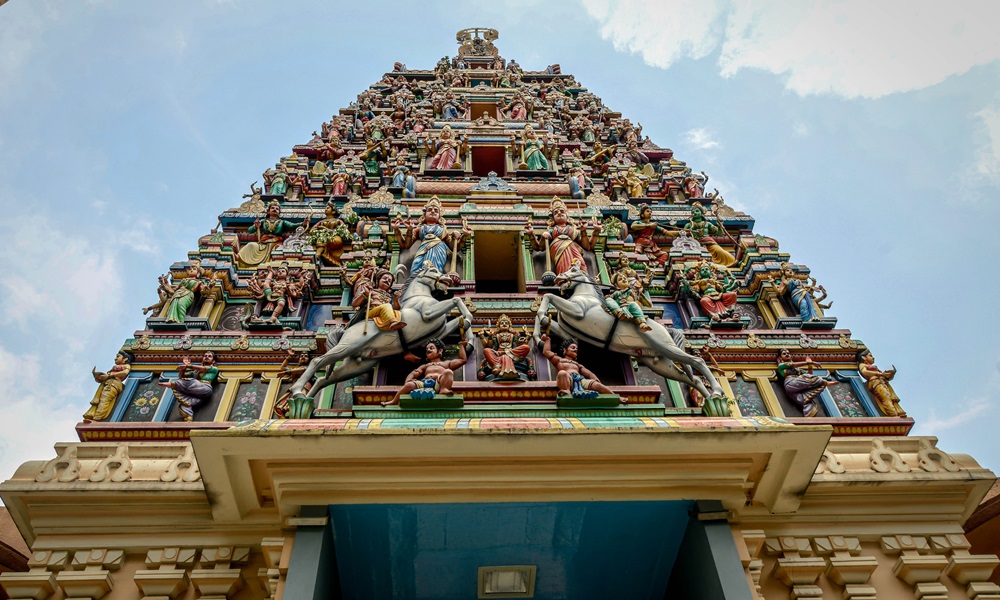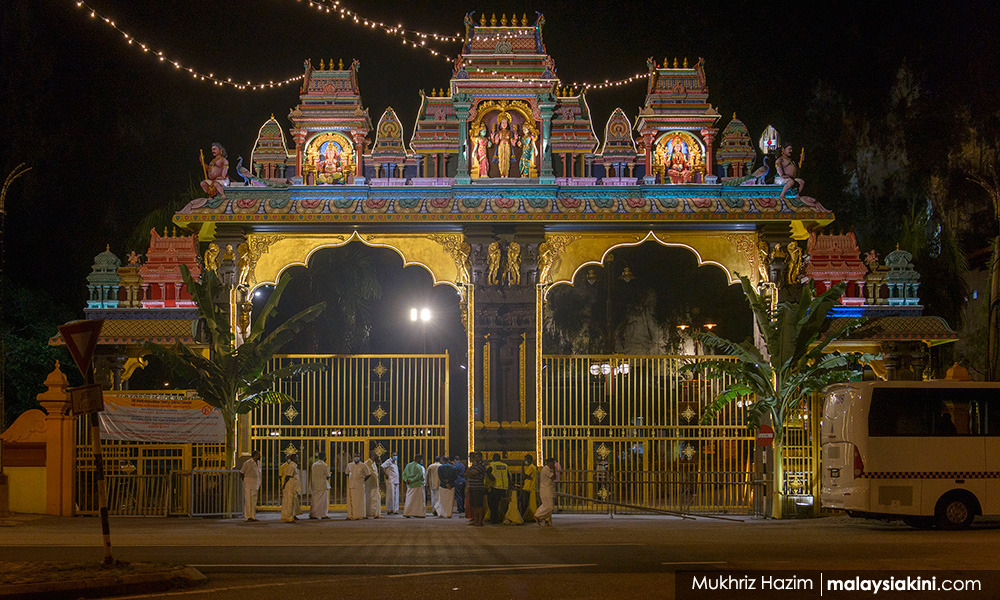Addressing the issue of land ownership among temples requires an in-depth understanding of the issue. If one thinks we can address all of it by playing along racial and religious lines, then trust me - we will face the same problem again and again in the coming years.
I came across the comment by Malaysian Advancement Party president, P Waythamoorthy on the MIC president's statement requesting all soon to be built Hindu temples to have proper land ownership and documentations.
Why is that being made an issue now? Was his advice wrong? Or did he mention that all temples without proper documentation or facing issues with land ownership be demolished as being propagated by some?
Like it or not, we all know what's the answer is. Let me recap some important facts on land ownership among Hindu temples in Malaysia.
The last survey conducted on temples and their land ownership status was around 2009. It was carried out by Malaysian Hindu Sangam and the Educational, Welfare & Research Foundation Malaysia (EWRF). The outcome of the survey was submitted to the Prime Minister's Office (PMO) and the survey received reasonable funding for subsequent phases.
One of the main outcomes of the study was that we managed to have detailed data on temples and their land ownership status. Here's a breakdown of the outcomes:
1. A total of 2,299 Hindu temples were identified all over the country. Remember these are temples, not shrines.
2. Out of 2,299, only 363 (15.78%) had land ownership. Meaning the land the temple resides on is owned by the temple.
3. A total of 313 (13.61%) temples were residing on land assigned by the government while another 327 (16.18%) temples were residing on unassigned government lands.
4. The balance of 1,251 (54.41%) temples reside on lands owned by plantations (629), third parties (398) and unknown status (224).
The outcomes clearly indicate that almost half of the temples identified through the survey do not have land ownership.
Secondly, most temples are self-administered by devotee groups. For regulatory purposes, these groups are required to be registered under ROS as organisations. This enables them to receive support in terms of funds, lands and even have properties.
For a fact, between 2009 and 2017 there was a total of RM 64.7 million allocated for Hindu temples alone for such purposes. The money did not go through MIC or other organisations.
Temple associations request for funds. Then it gets approved by the agencies involved. The funds get credited to their respective accounts. Such is also the situation in opposition-ruled states.

Let's take the Penang state government for an example. State government approves the funds and they go to either to the Hindu Endowment Board (HEB) before being distributed to temples under them or directly into the accounts of the respective temples for temples not under HEB.
The money does not goes through DAP or any other private organisation. This is also a matter of fact when it comes to land ownership. Any government or political party involved can only help to facilitate.
If a particular land is owned by the government, the government can work something out. But what if the land is owned by a third party? As legitimate owners of the land, the choice of whether to let the temple remain there or not is in their hands.
What we can do is nothing more than merely facilitate the due process. For instance, we can talk to the landowners to not demolish the temple and provide enough time for the temple group to relocate the temple.
It is also important to understand that in most cases, the lands are within the purview of the state government. For instance, if a developer as the legitimate owner wishes to remove a temple residing on the land for development, a state government will usually hold itself from approving the development order (DO).
Meanwhile, the temple association with the help of political parties, lawyers etc will get a stay order from the courts in the name of "public interest".
This will give that particular temple some extra time but unfortunately, that's all we will get. As long as the land is owned by another person or organisation and he/she does not want to have a temple or any other structure on it, we won't be able to change anything.
Nothing has changed
Waythamoorthy as a former minister should be able to understand all these issues better. Unless if he chooses to ignore them and keep harping on religious sentiments for political brownie points.
Let's not forget the fact that one of the biggest temple land ownership problems of recent times took place when he was a minister and that, too, in a Pakatan Harapan-led state.
What happened back then? Nothing. If it wasn't for MIC, we wouldn't have been able to obtain a stay order. All he did was merely give out statements.
For Waythamoorthy, it's always easy for him to point fingers. When he was made a minister, he first proposed the formation of the National Hindu Endowment Board. What happened to it? Nothing.
Then there was the promise to obtain RM4 billion for the Indian community's socio-economic advancement over 10 years. What happened to it? Nothing.

Putting aside Waythamoorthy, what we should be asking ourselves on the issues faced by temples which are only these:
1. Funds were there.
2. Support system was there.
3. Room for negotiations was there.
Yet, why is land ownership is still an issue? We could have used the funds available to negotiate and buy the land. We could have used the funds to negotiate and lease the land.
Despite having such options, nothing was done, unfortunately. Nothing much has changed and when things go out of hand, we stand aside and simply point fingers not knowing what really has happened.
And I'm just talking about federal funding. I haven't touched on the funds given by MPs, assembypersons, political parties, business people and members of the public.
How much more could have been done? Again, we all know the answers. After all, why bother when you can always point fingers at the government, political parties and every other person out there, right?
It's always easier to ask "What did MIC do", isn't it? - Mkini
SIVARRAAJH CHANDRAN is MIC vice-president.
The views expressed here are those of the author/contributor and do not necessarily represent the views of MMKtT.



No comments:
Post a Comment
Note: Only a member of this blog may post a comment.